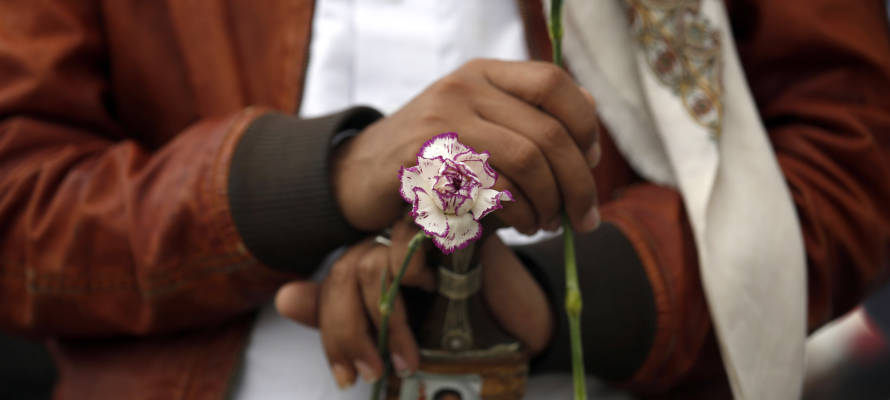Members of the Baha’i faith enjoy full religious freedom in Israel, but have been persecuted mercilessly in Muslim-majority countries.
By United with Israel Staff and AP
Iran arrested several members of the Baha’i faith on spying charges, authorities said Monday, the latest sign of a tightening crackdown across the Islamic Republic as it faces international pressure over its development of nuclear weapons.
Iran’s Intelligence Ministry said in a statement that the suspects were linked to the Baha’i center in Israel and had collected and transferred information there.
The Baha’i demanded their release and called their arrests part of a long pattern of persecution by Iran’s Shiite theocracy.
Iran remains one of the world’s worst human rights abusers, carrying literal eye-for-an-eye punishments that involve gouging out the eyes of the accused. The death penalty is also used, including public executions by hanging. In the past, Iran has stoned people to death.
In the first three months of 2022, Iran executed more than 100 people.
The Baha’i’s international governing body, the Universal House of Justice, has long been based in Haifa due to the religious freedom enshrined in law by Israel.
Members of the Baha’i faith have been persecuted in Muslim-majority countries in the Middle East.
No Evidence
Iran offered no evidence to support the allegations of the Baha’i doing anything illegal. State TV footage showed one of the suspects saying he was being monitored by agents of the ministry, though he did not acknowledge in the footage doing anything wrong.
The Baha’i through an international advocacy group identified several of those arrested as leaders in their religion who previously served 10-year prison sentences.
They are “domestic symbols of resilience and internationally renowned former prisoners of conscience,” the Baha’i said. “Arresting them reveals the Iranian government’s escalating persecution of Iran’s Baha’i community.”
Iran already bans the Baha’i, a religion founded in the 1860s by a Persian nobleman considered a prophet by his followers.
The Baha’i been persecuted by Shiite clerics in Iran since their religion’s founding — something that’s grown more intense since the 1979 Islamic Revolution.
In 2013, Iran’s Supreme Leader Ali Khamenei, who has final say on all state matters, urged Iranians to avoid all dealings with the Baha’i. Khamenei’s fatwa, or religious order, supported similar fatwas in the past by other clerics.
The detention of the Baha’i follow a wave of recent arrests as tensions escalate between Iran’s hard-line government and the West. Security forces have detained film directors, several foreigners and a prominent reformist politician as talks to revive Tehran’s nuclear accord with world powers hit a deadlock and fears grow over the country’s economic crisis.
